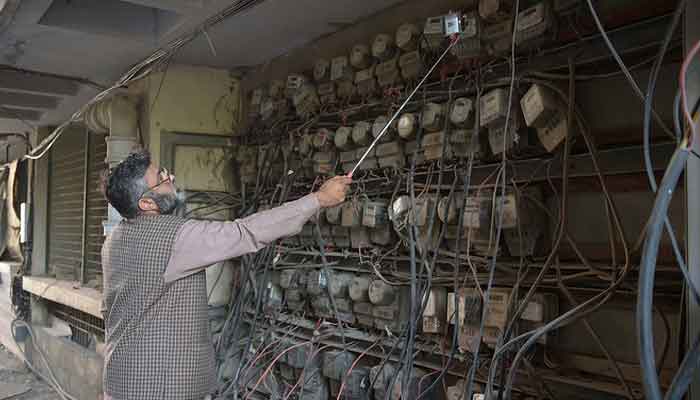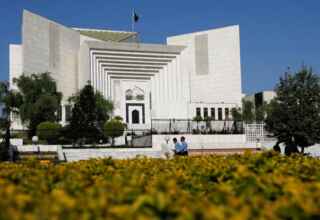
ISLAMABAD, MAR 2 (EW): Desperate to revive the loan programme to stabilise the falling economy, Pakistan on Wednesday gave in to the International Monetary Fund’s (IMF) demand of imposing a power surcharge on the consumers in the next fiscal year.
The Pakistani officials are baffled by IMF’s “Shifting goalpost” as the country makes hectic efforts to woo the lender which has set new conditions to unlock the $6.5 billion Extended Fund Facility (EFF) signed in 2019.
The cash-strapped country is undertaking key measures to secure a $1 billion tranche from the IMF under the ninth review of the EFF. Measures include raising taxes, and removing blanket subsidies and artificial curbs on the exchange rate.
Succumbing to one more IMF demand, the Economic Coordination Committee (ECC), which met under the chair of Finance Minister Ishaq Dar, has approved the slapping of a power surcharge up to Rs3.82 per unit from March to June 2023.
The power surcharge of Rs2.63 per unit on average will continue to be charged from power consumers in the next fiscal year 2023-24 in order to implement another tough condition imposed by the IMF for reviving the stalled IMF program.
This power surcharge will also be applicable on power consumers of K-Electric.
Tariff for K-Electric consumers
The ECC approved tariff rationalisation for K-Electric by adjustments on the consumption from July 2022 to September 2022 and to recover from consumers from March 2023 to May 2023, respectively.
It also approved the enhancement of the surcharge for the financial year 2024 to cover federal government obligations towards power producers.
These surcharges for FY24 will also be applied to K-Electric consumers to maintain uniform tariffs across the country.
Tariff increase for residential consumers of Rs1.55 per kWh for the second quarter of 2021-22 and another increase ranging from Rs1.4 per kWh to Rs 4.45 per kWh for the first quarter of 2022-23 depending on usage of units.
Ramazan Relief Package
The ECC also approved the Rs5 billion Ramazan Relief Package through the Utility Stores Corporation based on a hybrid model of targeted and un-targeted subsidies.
The package, proposed by the Ministry of Industries and Production, would cover 19 items that could be purchased from the utility stores across the country.
It also allowed waiving storage charges on stuck-up containers due to non-retirement of LCs and forex remittances.
The body considered a summary tabled by the Ministry of National Food Security and Research on the procurement price of wheat crop 2022-23 and after detailed discussion approved a uniform procurement price of wheat crop 2022-23 at Rs3,900/40 kg.
On the other hand, Sindh had notified the support price of wheat at Rs4,000/40kg and Punjab had notified Rs3,900/40kg as the commodity’s support price.
At the same time, the Trading Corporation of Pakistan reported the price of imported wheat coming to Rs4,500 to Rs5,000/40kg, including inland transportation and incidentals of PASSCO.
The Pakistan Bureau of Statistics highlighted that wheat was available on Feb 23 for Rs4,359/40kg in Punjab, Rs3,825/40kg in Sindh, Rs4,198/40kg in KPK and Rs5,109/40kg in Balochistan.
The ECC considered a summary submitted by the Ministry of Maritime Affairs and approved the Karachi Port Trust (KPT) Board resolution on waiving off all the charges of storage on the stuck-up containers/cargo held up at Karachi Port as a result of non-retirement of Letter of Credits and remittances of Foreign Exchange.
However, if the demurrage charges go beyond Rs5 million, the KPT will have to seek certification from SBP prior to granting the waiver.
The ECC further directed to submit a report on the amount of cleared consignments on monthly basis.







